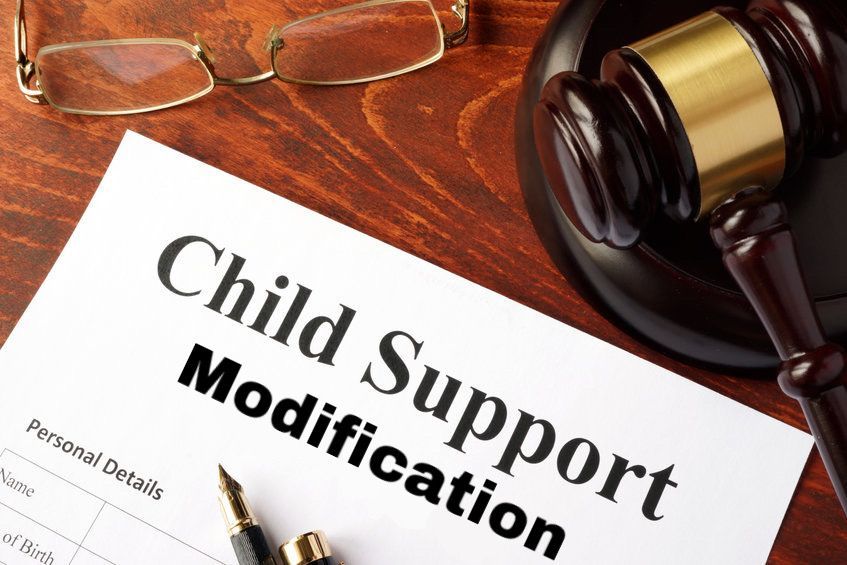How Long after an Accident Can you Still Make a Claim?
Yes, you can make a claim after an accident, but time limits apply. In Rhode Island, you have three years from the date of your accident to file a personal injury lawsuit. However, your insurance company wants to know about the accident much sooner usually within 24 to 72 hours.
After a car crash or other accident, you're probably hurt, stressed, and confused. The last thing you want to think about is deadlines and paperwork. But knowing how long you have to make a claim can save you thousands of dollars and protect your legal rights.
Understanding the Two Main Deadlines
When you're hurt in an accident, you face two different types of deadlines. Getting these mixed up can cost you big time.
Insurance Claim Deadlines
Your insurance policy tells you when you must report an accident. Most insurance companies use words like "promptly" or "within a reasonable time." What does that really mean? Usually, it means you should tell your insurance company within 24 to 72 hours after the crash.
Some insurance policies spell it out clearly you might have 30 days to file a claim. Other policies are fuzzy about the exact time. Either way, the sooner you report, the better. If you wait too long, your insurance company might say no to your claim. They could argue that you waited so long, they can't check the facts anymore.
Think of it like this: if you spill milk on the floor and clean it up right away, no problem. But if you wait three months and then say you need new floors because of that spill, people will have questions. Insurance companies think the same way.
Lawsuit Filing Deadlines (Statute of Limitations)
This is different from insurance deadlines. In Rhode Island, you have three years from the date of your accident to file a lawsuit in court. This deadline is called the statute of limitations, and it's the law not just an insurance company rule.
Rhode Island General Laws § 9 1 14(b) gives you three years to file most personal injury lawsuits. This covers car accidents, slip and falls, and many other injury cases. If you miss this deadline, the court will throw out your case. You lose your chance to get money for medical bills, lost wages, and pain.
Three years sounds like a lot of time. But trust me, it goes by fast when you're dealing with doctors, physical therapy, and trying to get your life back to normal.
Why You Should Act Fast
Waiting to file your claim seems harmless. After all, you have time, right? Wrong. Here's why speed matters.
Evidence Disappears
Car parts get fixed. Security camera footage gets deleted. Skid marks on the road wash away in the rain. Witnesses forget details. The longer you wait, the harder it is to prove what happened.
Evidence from accidents fades quickly, making it harder to prove your case if you delay. Pictures from the accident scene, names of people who saw what happened, and even your own memory get fuzzy over time.
Your Injuries Might Get Worse
Sometimes you feel okay right after an accident. Then a week later, your neck hurts or your back won't stop aching. If you already filed a claim, you can add these new injuries. But if you never reported the accident at all, the insurance company will say, "How do we know this is from the accident?"
Insurance adjusters often question injuries that aren't reported promptly, arguing they could have been caused by something else. Getting medical help right away creates a paper trail that shows your injuries came from the accident.
Insurance Companies Play Games
Insurance companies look for reasons to pay you less money or nothing at all. One of their favorite tricks is to say you waited too long. They'll argue that if your injuries were really that bad, you would have gone to the doctor sooner.
Don't give them ammunition. Report your accident and get medical help right away.
Rhode Island Specific Time Limits
Living in Rhode Island means following Rhode Island rules. Let's break down what applies to you.
The Three Year Rule for Personal Injury
If you were injured in a car accident on September 5, 2020, your deadline to file a lawsuit would be September 5, 2023. The clock starts ticking on the day of the accident. Not the day you found out you were hurt. Not the day you finished treatment. The day the accident happened.
This three year deadline covers most accident cases, including:
- Car accidents
- Motorcycle crashes
- Pedestrian accidents
- Slip and fall injuries
- Dog bites
Property Damage Claims
What if your car got smashed but you didn't get hurt? Rhode Island gives you longer to sue for property damage. You have up to 10 years to file a claim for property damage in Rhode Island. That's a lot more time than you get for injury claims.
But don't wait 10 years to fix your car. Your insurance company still wants to hear from you right away.
Wrongful Death Claims
When someone dies in an accident, their family members can file a wrongful death lawsuit. In Rhode Island, you typically have three years from the date of death to file a wrongful death claim.
Sometimes the cause of death isn't obvious right away. If the wrongful act causing death wasn't known at the time of death, the three year period starts when the wrongful act is discovered or reasonably should have been discovered.
When the Clock Stops or Pauses
The three year deadline isn't set in stone for everyone. Some situations can pause the clock or give you more time.
If You're Under 18
Kids get special treatment under the law. If you're a minor when the accident happens, the statute of limitations doesn't start running until you turn 18. Then you have three more years from your 18th birthday to file a lawsuit.
So if a 10 year old gets hurt in a car crash, they have until age 21 to file a personal injury lawsuit.
If the At Fault Person Leaves Rhode Island
Let's say someone hits you with their car and then moves to Florida. The statute of limitations clock may pause if the person who caused your injury leaves Rhode Island and doesn't return. The time they're gone doesn't count against your three years.
If Someone Hides What They Did
Sometimes the person who hurt you tries to cover it up. If the responsible party intentionally conceals the injury through actual misrepresentation, the statute of limitations doesn't start until you discover what happened.
This is rare, but it happens. Maybe a doctor lies about a surgery mistake. Or a company hides that their product is dangerous.
The Discovery Rule
What if you didn't know you were injured right away? In some cases, the clock doesn't start ticking until you discover your injury or reasonably should have discovered it.
This mainly applies to things like medical malpractice or toxic exposure. For example, if a doctor leaves a surgical tool inside you during an operation, but you don't find out until years later, the clock starts when you discover the mistake not when the surgery happened.
Car accidents usually don't qualify for this exception. If you get in a crash, you know about it. Even if you don't feel pain right away, the accident itself happened on a specific date.
How to Report Your Accident Properly
Knowing what to do after an accident can make or break your claim. Follow these steps to protect yourself.
At the Scene of the Accident
- Call 911 if anyone is hurt. This gets police to the scene and creates an official accident report.
- Take pictures. Use your phone to photograph all the vehicles, any visible injuries, skid marks, traffic signs, and the surrounding area.
- Get information. Write down names, phone numbers, insurance information, and license plate numbers from everyone involved.
- Find witnesses. If people saw what happened, get their contact information.
- Don't say you're fine. Even if you feel okay, tell the paramedics about any discomfort. Some injuries take hours or days to show up.
In the First 24 to 72 Hours
Most insurance policies require you to report accidents promptly, typically within 24 to 72 hours. Call your insurance company as soon as you can. Give them the basic facts, but don't guess about who was at fault or how badly you're hurt.
See a doctor right away. Even if you feel fine. Some injuries like whiplash, concussions, or internal bleeding don't hurt at first. Getting medical care creates a record that ties your injuries to the accident.
Keep Track of Everything
Make a file paper or digital for all your accident documents. Save:
- Medical bills and treatment records
- Prescription receipts
- Pay stubs showing missed work
- Repair estimates and bills for your car
- Photos of your injuries as they heal
- A journal of your pain and how the accident affects your daily life
This stuff proves how much the accident has cost you.
Insurance Claim vs. Lawsuit: What's the Difference?
Most people get confused about this. Let me make it simple.
Filing an Insurance Claim
An insurance claim is when you ask an insurance company to pay for your damages. You can file a claim with:
- Your own insurance company (first party claim)
- The at fault person's insurance company (third party claim)
Most car accident cases begin with an insurance claim, which is often quicker than a lawsuit but doesn't always result in a fair settlement. Insurance companies want to pay you as little as possible. That's how they make money.
Your insurance policy usually requires you to report accidents within days or weeks. But you might have months to actually file the claim paperwork and check your specific policy.
Filing a Lawsuit
When the insurance company offers too little or denies your claim altogether, your next step may be filing a lawsuit. A lawsuit means taking the case to court and having a judge or jury decide.
Lawsuits take longer than insurance claims. But sometimes they're the only way to get fair money for serious injuries. This is where the three year statute of limitations really matters. If you miss that deadline, you can't sue even if the insurance company treated you unfairly.
Common Mistakes That Kill Claims
Don't let these errors ruin your chance at compensation.
Waiting Too Long to See a Doctor
You feel a little sore after the accident but decide to "tough it out." Big mistake. If there's any delay in seeking medical treatment, insurance adjusters may question whether your injuries are severe or even related to the accident.
Get checked out within 24 hours if possible. Tell the doctor about every ache and pain, even if it seems minor.
Not Reporting the Accident to Your Insurance
Some people think, "The other driver caused this, so I'll just deal with their insurance." Wrong move. Your own insurance company needs to know about the accident even if you weren't at fault.
Failing to report an accident to your own insurance company can violate your policy and give them grounds to deny coverage. Most policies require you to report "promptly," which means right away.
Posting on Social Media
That photo of you smiling at your kid's birthday party seems harmless. But the insurance company will use it to say you're not really hurt. They'll argue, "Look, she's having fun! She must be fine!"
While you're dealing with an accident claim, stay off social media. Or at least don't post anything about the accident, your injuries, or your activities.
Taking the First Settlement Offer
Insurance companies often make a quick, low settlement offer right after an accident. They're hoping you'll take the money before you know how bad your injuries really are.
Once you accept a settlement and sign a release, you can't come back for more money even if you find out later that you need surgery or can't go back to work. Talk to a lawyer before accepting any settlement.
Giving a Recorded Statement
The other driver's insurance company might call and ask you to give a recorded statement about the accident. They sound friendly and helpful. Don't do it.
These statements are designed to trap you. They'll ask leading questions to get you to say things that hurt your case. You're not required to give them a statement. Politely say no.
Types of Claims and Their Deadlines
Different accidents have different rules. Here's what you need to know for common situations.
Car Accident Claims
For a car accident in Rhode Island:
- Report to your insurance: within 24 72 hours
- File insurance claim: check your policy, usually within 30 days to a few months
- File lawsuit: within three years of the accident date
Rhode Island also requires you to report certain accidents to the police. Most states, including Rhode Island, require reporting accidents that cause injury, death, or at least $1,000 in property damage.
Motorcycle and Pedestrian Accidents
The same three year statute of limitations applies to motorcycle accidents and pedestrian accidents. The key is proving the other party was at fault and filing before the deadline.
Truck Accidents
Truck accidents are more complicated because commercial trucks have different insurance requirements. But your three year deadline to file a lawsuit is the same. The insurance reporting timeframe depends on your policy and the trucking company's policy.
Slip and Fall Cases
For slip and fall injuries, Rhode Island gives you three years from the date the incident occurred to file a lawsuit. This includes accidents on someone else's property due to their negligence, like a wet floor without warning signs or a broken step.
One tricky part: If a state or municipality is potentially responsible for your fall, there may be notice requirements that begin very soon sometimes within 60 days of the date of injury. This means if you trip on a broken sidewalk owned by the city, you might need to file special paperwork within two months, or you lose your right to sue forever.
Construction Accidents
Construction accidents often involve multiple parties property owners, contractors, subcontractors, and equipment manufacturers. You still have three years to file your personal injury lawsuit, but figuring out who to sue gets complicated. Start working with a lawyer early.
Dog Bite Cases
Rhode Island's three year statute of limitations applies to dog bite injuries as well. Report the bite to animal control right away, and see a doctor to document your injuries and get rabies prevention treatment if needed.
What Happens If You Miss the Deadline?
Let's say you wait three years and one day to file your lawsuit. What happens?
The person who hurt you (or their lawyer) will ask the court to dismiss your case. If you miss the statute of limitations deadline, the courts will likely dismiss your case and bar you from pursuing your claim, regardless of how strong your case is.
It doesn't matter if you have perfect proof. It doesn't matter if your injuries are severe and expensive. It doesn't matter if the other person admits they caused the accident. Once the deadline passes, you're out of luck.
You'll be stuck paying for all your medical bills, lost wages, and other damages yourself. This is why timing is so critical.
Why Working with a Lawyer Helps
You might think, "I can handle this myself and save money on lawyer fees." But here's the truth: lawyers usually get you more money, even after they take their fee.
Lawyers Know All the Deadlines
An experienced personal injury lawyer can determine how the statute of limitations applies to your specific case. They know about exceptions, special rules, and filing requirements you've never heard of.
Rhode Island has some cases where you need to give notice to the government before you can sue. If you slip on ice on a city sidewalk, you might have special paperwork due within 60 days. Miss that deadline, and your three year statute of limitations won't matter you're already blocked from suing.
Lawyers Deal with Insurance Companies
Insurance adjusters are trained to pay you as little as possible. They know tactics to make you doubt your claim, accept a low offer, or say something that hurts your case.
Lawyers speak the insurance company's language. They know how much your case is worth. They won't let the adjuster push you around.
Lawyers Gather Strong Evidence
Building a strong case takes work. You need medical records, accident reports, witness statements, expert opinions, and more. Working with a car accident lawyer can lead to a faster, higher settlement offer.
Lawyers have investigators and experts who can reconstruct the accident, analyze medical records, and calculate your full damages including future medical care and lost earning capacity.
No Upfront Costs
Most personal injury lawyers work on contingency. This means you don't pay anything unless you win. The lawyer gets a percentage of your settlement or court award usually around 33%.
So if your case is worth $100,000, the lawyer might take $33,000 and you keep $67,000. But if you tried to handle it yourself, the insurance company might only offer $30,000. With a lawyer, you actually end up with more money in your pocket.
Special Situations That Affect Deadlines
Some accident cases have extra complications that change the normal rules.
Multiple Injured Parties
If several people got hurt in the same accident, each person has their own three year deadline. One person missing their deadline doesn't affect the others.
Government Defendants
Suing a state, city, or town in Rhode Island is different from suing a regular person or business. Rhode Island has a three year deadline for suits against the state or local government, but special notice rules often apply.
Some government claims require you to file a notice of claim before you can sue. This notice might be due within 60 days, six months, or some other short timeframe. If you miss the notice deadline, you can't sue at all even though the three year statute of limitations hasn't expired yet.
Workers' Compensation Cases
If you got hurt at work, workers' compensation has its own deadlines separate from personal injury claims. In Rhode Island, you typically need to report a work injury to your employer within a short time (often within a few days or weeks). Then you have specific deadlines to file for workers' comp benefits.
Sometimes you can file both a workers' compensation claim and a personal injury lawsuit. For example, if a drunk driver crashed into your work truck while you were making deliveries. Talk to a lawyer who handles both types of cases.
Product Liability Cases
Rhode Island's product liability statute of limitations is 10 years from the date the product was purchased, regardless of when the injury occurred. But you still only have three years from the date of your injury to file.
So if a defective product hurts you five years after you bought it, you have three years from the injury date to sue. If the product was purchased more than 10 years ago when you got hurt, you might be out of luck even though your injury is recent.
How Insurance Companies Try to Delay Your Claim
Understand these tactics so you don't fall for them.
The "We Need More Information" Game
The insurance company says they need additional documents, forms, or records. You send everything they ask for. Then they say they need something else. And something else. And something else.
They're trying to run out the clock. While you're scrambling to give them more paperwork, your deadline to file a lawsuit is getting closer.
The "Let's Wait and See" Approach
The adjuster suggests waiting to see if your injuries get better before settling. Sounds reasonable, right? But meanwhile, months pass. Then a year. Then two years.
Before you know it, your three year deadline is looming and you haven't settled yet. Now you have less leverage because the insurance company knows you're running out of time to sue.
The Lowball Offer
They make an insulting offer early on. You reject it. They come back with an offer that's slightly better, but still terrible. More time passes during negotiations.
This back and forth can eat up years if you let it. Don't let the insurance company control the timeline. Set your own deadlines and stick to them.
What to Do Right Now
If you've been in an accident, here's your action plan:
If Your Accident Was Recent (Within the Past Few Days)
- See a doctor today if you haven't already
- Call your insurance company to report the accident
- Take photos of your injuries, your damaged car, and anything else related to the accident
- Write down everything you remember about the accident while it's fresh
- Don't talk to the other driver's insurance company
- Contact a lawyer for a free consultation
If Your Accident Was a While Ago (Weeks or Months)
- Figure out your exact deadline (count three years from the accident date)
- Contact a lawyer immediately don't wait
- Gather all documents you have related to the accident
- If you haven't filed an insurance claim yet, do it now
- Stop posting on social media about the accident or your life in general
If Your Three Year Deadline Is Coming Up Soon
- Contact a lawyer today this is an emergency
- Even if it's a weekend or holiday, call a law firm's emergency line
- Don't assume you're out of luck until a lawyer tells you so
- There might be exceptions that apply to your case
Understanding "Reasonable Time" for Insurance Claims
Insurance policies often say you must report accidents within a "reasonable time" without defining what that means. Here's what you need to know.
What Courts Consider Reasonable
When a policy requires notice within a reasonable amount of time, courts look at a variety of facts and circumstances to determine if your delay was acceptable. Factors include:
- How serious was the accident?
- Were you physically or mentally unable to report it sooner?
- Did the delay hurt the insurance company's ability to investigate?
- Is there clear proof of what happened despite the delay?
A Week vs. Six Months
Reporting an accident one week late because you were in the hospital? Probably reasonable. Waiting six months because you forgot? Probably not reasonable.
The insurance company will argue that a lengthy delay compromises their ability to assess damage and identify the responsible driver. But they have to prove your delay actually harmed their investigation. If you have photos, witnesses, and other evidence, a moderate delay might not kill your claim.
Play It Safe
Don't test the limits of "reasonable time." Report your accident as soon as humanly possible. The only good reason to delay is if you're physically unable to make a call like you're unconscious in the hospital.
Final Thoughts
Time limits for accident claims aren't just annoying red tape they're serious deadlines that can make or break your case. In Rhode Island, you have three years to file a personal injury lawsuit, but your insurance company wants to hear from you within 24 to 72 hours of the accident.
Don't wait until the last minute. Evidence disappears, memories fade, and insurance companies use delays against you. The sooner you take action, the stronger your case will be.
If you've been hurt in an accident, you deserve fair compensation for your medical bills, lost wages, pain, and suffering. But you have to act within the time limits or you could lose everything.
At Inman & Tourgee, our experienced Rhode Island attorneys have helped accident victims for decades. We know the deadlines, the exceptions, and how to build a strong case. Contact us today for a free consultation. Don't let time run out on your right to compensation.
Call 888-271-3905 or reach out through our contact page to speak with an attorney about your accident claim.











